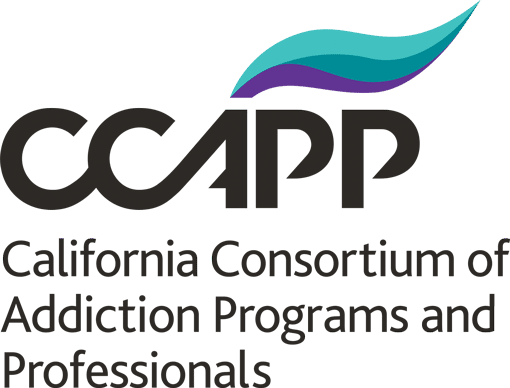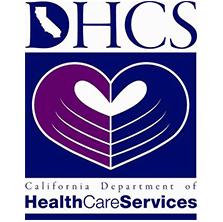
Living with post traumatic stress disorder (PTSD) can feel like carrying a heavy weight that no one else sees. Whether your trauma came from sexual assault, combat, abuse, serious injury, threatened death, experiences common among combat veterans, or another traumatic event or past traumatic event, these traumas can leave lingering fear, anxiety, and pain that affect every part of your life.
If you’re struggling, you’re not alone. And you may be wondering: Can my faith really help me heal from trauma?
The answer is slightly complicated. God sometimes allows us to quickly heal from trauma, and sometimes He allows us to continue to struggle with it for a season.
“And we know that for those who love God all things work together for good, for those who are called according to His purpose.” – Romans 8:28
PTSD and Christianity may not seem like obvious companions, but Scripture offers deep reassurance that God is close to the brokenhearted—and that through Jesus Christ, healing is possible.
Get Help Today
Help and healing are possible through our Christian rehab programs.
If you are ready to take the next step and learn more about how a Christian rehab center can aid in your recovery, feel free to reach out to us at any time.
What Is PTSD?
Posttraumatic stress disorder (PTSD) is a mental health condition that can develop after experiencing or witnessing a traumatic event. It’s not a sign of weakness; it’s your brain and body responding to overwhelming pain. To meet the diagnostic criteria for PTSD, symptoms must last for more than a month, although some people may start to feel better after a few weeks. PTSD symptoms are grouped into specific symptoms categories, and the ‘PTSD fall’ refers to the point at which these symptoms become diagnosable. Psychological distress is a common result of trauma, and certain risk factors make some people more likely to develop PTSD.
PTSD symptoms often include:
Nightmares or flashbacks of the traumatic event
Avoiding people, places, or activities linked to the trauma
Feeling numb, anxious, or angry
Difficulty sleeping or concentrating
Memory problems
A constant sense of fear or being on edge
Other symptoms, such as mood changes or physical complaints, may also occur.

How Christianity Can Help with PTSD
While professional treatment is crucial, many find that religious faith provides strength, comfort, and purpose during recovery. Faith communities can also offer emotional and spiritual support, helping individuals cope with stress, anxiety, or trauma. Here’s how Christianity can help you heal from traumatic stress disorder (PTSD):
1. You’re Not Alone
Scripture reminds us that God is near to those who are hurting. When you feel isolated in your suffering, faith assures you that Jesus Christ walks beside you.
2. Hope Beyond the Pain
PTSD symptoms often make it feel like healing is impossible. But faith speaks of hope—a future of peace and wholeness that trauma cannot take from you.
3. Community Support
Churches, prayer groups, and Christian counselors offer a supportive community where you can process pain without judgment, surrounded by people who understand that healing is both a spiritual and emotional journey.
The Connection Between PTSD and Physical Health
Post traumatic stress disorder (PTSD) is more than just a mental health condition—it can have a profound impact on your physical health as well. When you experience or witness a traumatic event, your body and mind both respond to the overwhelming stress. This connection between traumatic stress disorder PTSD and physical health is important to understand on your healing journey.
After a traumatic event, many people notice changes in their bodies as well as their emotions. PTSD symptoms like trouble sleeping, ongoing fear, and constant tension can take a toll on your physical health over time. For example, people with stress disorder PTSD may experience headaches, stomach problems, chronic pain, or even heart issues. These physical symptoms can make it even harder to cope with daily life and may increase the risk of developing other health problems.
On the other hand, struggling with physical health issues can also make PTSD symptoms worse. Chronic pain or illness can increase feelings of anxiety, depression, and distress, creating a cycle that’s hard to break. That’s why it’s so important to care for both your mind and your body after trauma.
If you’re living with posttraumatic stress disorder, remember that healing involves your whole self. Seeking support for both your mental health and physical health can help you regain balance, improve your well-being, and move forward after traumatic events.
Professional Treatment Is Still Important
While faith provides a foundation for healing, most people need professional care to fully treat PTSD. Common evidence-based therapies include:
Cognitive processing therapy
Prolonged exposure therapy
Talk therapy with a trained mental health provider
Trauma focused psychotherapy is a specialized approach that concentrates on addressing traumatic memories and their meanings, and is considered one of the most effective forms of treatment for PTSD. In addition, and only if indicated, certain medications such as sertraline, paroxetine, and venlafaxine are effective treatment options for alleviating PTSD symptoms. Mental health professionals, including psychiatrists and therapists, are essential for providing these treatments and guiding recovery.
If you’re struggling with other mental health problems like depression or anxiety in addition to PTSD, a comprehensive care plan can help address your full needs with treatment options tailored to you.
How LINKS Can Help You Heal
At LINKS, the Christian recovery track at Northbound Treatment in Orange County, CA, we recognize that trauma recovery is both clinical and spiritual. Whether you’ve received a PTSD diagnosis or are living with undiagnosed symptoms, our program combines professional care with faith-based support.
Here’s what you’ll find at LINKS:
Evidence-based trauma therapies, like cognitive processing therapy and talk therapy
Professional counseling alongside prayer support
A focus on rebuilding your life emotionally, spiritually, and physically
Compassionate care from a team that understands post traumatic stress disorder
Whether you’re working through the aftermath of sexual assault, a traumatic event, or years of pain, our team can help you regain stability, find positive emotions, and reconnect with your faith.
Faith and Treatment Together
Healing from traumatic stress disorder PTSD doesn’t require choosing between professional help and your faith. Both can work together beautifully.
Jesus Christ offers spiritual healing. Professional care offers the tools to process and release trauma. Together, they create a path to freedom.
A Prayer for People Struggling with PTSD
“Lord Jesus Christ, I feel broken from the trauma I’ve experienced. I ask for Your presence in the places where fear still controls me. Guide me toward healing, whether through therapy, community, or Your Word. Remind me that I’m not alone—and that in You, hope is still possible. Amen.”
You’re Not Alone. Healing Is Possible.
If you’ve been wondering whether faith can help with trauma, the answer is yes. But you don’t have to walk this path alone.
Call LINKS today at (866) 434‑1330. Our Christ-centered team of therapists and counselors is here to help you heal from post traumatic stress disorder in both body and soul.
There’s hope for life beyond trauma—and we’re here to help you find it.
Get Help Today
Help and healing are possible through our Christian rehab programs.
If you are ready to take the next step and learn more about how a Christian rehab center can aid in your recovery, feel free to reach out to us at any time.
FAQs About PTSD and Christianity
Can anyone develop PTSD after trauma?
Yes. Anyone who experiences or witnesses a traumatic event, such as abuse, natural disasters, or violence, can develop PTSD. It’s not a sign of weakness—it’s a common response when your mind and body struggle to process overwhelming fear or pain.
Should I see a mental health professional for PTSD?
Absolutely. A mental health professional can help diagnose and treat posttraumatic stress disorder (PTSD) using evidence-based therapies. If you’re experiencing significant distress, trouble sleeping, or persistent negative thoughts, professional help is an important step in healing.
What kinds of events can cause PTSD?
PTSD can develop after any deeply distressing or traumatic experience, including natural disasters, sexual assault, serious accidents, or prolonged abuse. If you’re struggling to cope after a painful experience, it’s important to seek support.
How does PTSD affect my emotions?
People with PTSD often experience painful negative emotions, such as fear, sadness, anger, and guilt. These overwhelming feelings can interfere with daily life, relationships, and mental well-being, leading to what are known as mood symptoms of PTSD.
What role do negative thoughts play in PTSD?
After trauma, many people experience persistent negative thoughts—like self-blame, hopelessness, or fear that the world is unsafe. Therapy focuses on changing painful negative emotions and reframing harmful thought patterns to support healing.
Can my religious beliefs help me heal from PTSD?
Jesus Christ can offer comfort and strength as you work through trauma. Practices like prayer, Scripture reading, church involvement, and community support can complement professional treatment and help you find hope amid suffering.
Do spiritual practices help with PTSD recovery?
Many people find that spiritual practices, such as meditation, prayer, or attending church, support emotional healing. When paired with therapy, these practices can help you regain a sense of peace, stability, and connection after trauma.
What should I do if I’m experiencing significant distress after trauma?
If you’re feeling overwhelmed, disconnected, or unable to manage daily life, reach out to a mental health professional. Trauma recovery takes time, and professional support can help you safely process what you’ve experienced and begin healing.












